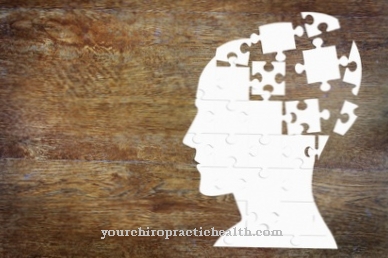To forget is a natural process that increases with age. Forgetting also helps to maintain mental health, because we cannot possibly remember everything that we see, hear, taste, smell and feel.
What is forgetting?

There are two theories about forgetting: One assumes that over time all images and stored information fade and eventually disappear entirely. That would mean that the more time passes, the more we forget. This theory has not been proven. The second is that we forget because certain things are overlaid with more interesting and new impressions. Access to old information then becomes increasingly difficult.
Several brain regions are responsible for memory performance, mainly the prefrontal cortex (frontal lobe) and the hippocampus. The hippocampus is used to store memory content. The frontal lobe on the front of the brain links memory content with emotional evaluations.
The memory performance of individual people can be very different and depends on age, training and willingness to learn. Memory performance improves constantly up to the age of 20. It gradually decreases from the age of 30 and can lead to memory problems in old age. Memory is also affected by accidents or brain surgery.
That we forget something does not necessarily mean that the content is irrevocably lost for memory. Sometimes they can be revived, they were just "buried".
Key stimuli facilitate access to information in memory. Memory artists make this knowledge their own and combine numbers with images, for example, in order to be able to memorize content better.
Function & task
Forgetting is a natural process and happens frequently and to everyone throughout the day. We forget in order to be able to concentrate on the essentials. However, forgetting can also mean losing one's intellectual property and thus losing touch with reality, as is the case with certain brain diseases.
There are different theories about the function and process of forgetting. Forgetting occurs once because a certain time has passed between observing and memorizing things. Every word, every feeling and every thought is anchored in our memory. Without the power of memory, our consciousness would only consist of selected moments. Forgetting also protects us from sensory overload, because if we remembered all the information, we would no longer be able to process it.
To this day, the language of our brain has not really been deciphered. It consists of 100 billion nerve cells that are connected to form a dense network of neurons.
If a nerve cell is excited by a stimulus that hits it, an electrical impulse is passed on to the neighboring cell. As soon as we learn something new and anchor it in our memory, these connections between the neurons strengthen, become denser and stronger. The more we repeat this, the stronger the network becomes.
Nevertheless, the process of remembering is like a puzzle. Many gaps are filled by guessing. However, forgetting also depends on the individual physical condition and brain performance. The stronger the emotional involvement, the longer the information is stored.
Impressions that are associated with a positive mood are better remembered than less touching impressions. The memory can be trained very well and thus the memory rate can be increased significantly.
You can find your medication here
➔ Medicines against memory disorders and forgetfulnessIllnesses & ailments
Memory performance is the knowledge that we can reproduce consciously and unconsciously (e.g. riding a bicycle or typing). Forgetfulness is reinforced by many influences. For example, stress is the greatest risk factor for forgetfulness in a healthy person. It is believed that the stress hormone cortisol damages nerve cells that are responsible for memory performance.
The hypothalamus is responsible for the production of cortisol. A mechanism ensures that too much cortisol is not released and that permanent stress occurs. This control mechanism does not work in people with depression. More and more cortisol flows into the brain, leading to constant stress and a decline in memory.
Even people with damage to brain areas that are responsible for memory can only retain information for a very short time. Damage to the hypocampus leads to severe amnesia. Depending on the type of disease, short-term memory or long-term memory is affected.
The effects on memory performance are very different and can either improve or worsen, depending on which area of the brain is affected. Without these areas, conscious remembering of the past is not possible. Causes can be excessive alcohol abuse, a brain infection or a brain trauma.
There is also the opposite situation, that illness or accidents lead to a very good memory. However, this is rare and can be seen, for example, in some people with autism who are endowed with photographic memory.
With age, the memory stores less and less new information. Dementia is the most noticeable disease that is associated with brain changes and memory loss and, in advanced stages, leads to death. The disease is divided into three phases, each phase lasting up to seven years. In some cases, those affected can no longer remember their name and gradually forget the simplest steps. For example, they no longer know that the spoon is brought to their mouth when they eat.
When depression is cured, normal memory also returns. But unlike depression, memory loss in dementia patients is no longer reversible.













.jpg)

.jpg)
.jpg)











.jpg)